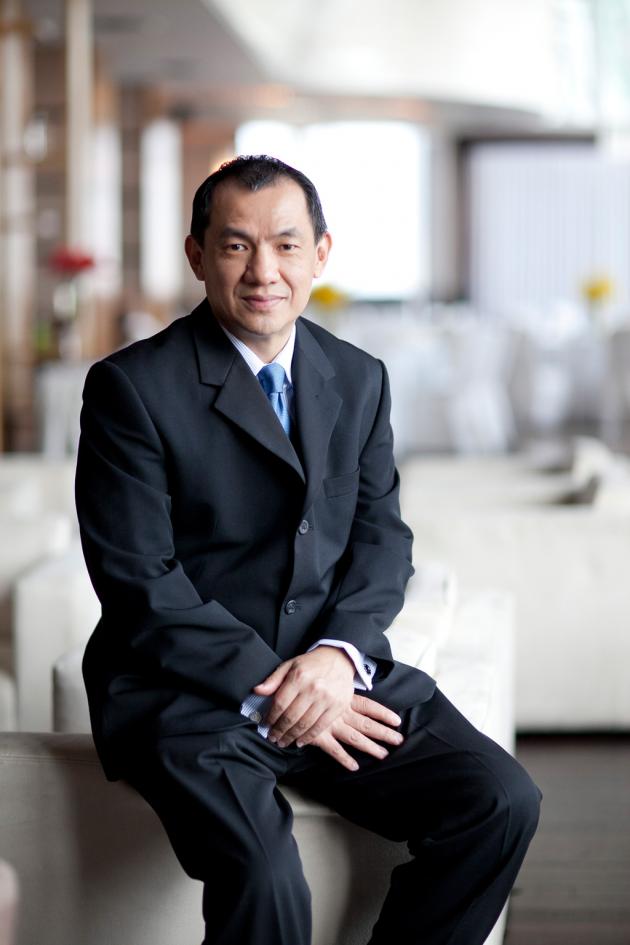Creating a corporate culture

Having competent workers is a good start but it is the corporate culture that will help sustain an organisation's success. Realising this fact, Nasdaq-listed IT company NetApp has identified the workplace culture as one of its three key success elements s
The other two success elements include internal strategies and external market presence. NetApp has been built very differently from many other IT companies. Its first chief executive Dan Warmenhoven just retired three years ago after being the longest-serving CEO in Silicon Valley. The firm’s first sales executive is still working with the company – as a vice president – while the second sales executive is currently vice president in charge of sales operations worldwide.
“We don’t want to create a high-flyer image [among staff], rather we want to have committed employees,” said Weera Areeratanasa, country manager of NetApp (Thailand), in an interview with The Nation.
Similar to the US headquarters, NetApp (Thailand) has achieved zero staff turnover since Weera took on the leadership three years ago, despite high turnover in the Thai IT industry, and a doubling of headcount to 12. “Peer interview”, new-hire training, and “buddy system” that every new staff will have a senior staff assigned as his or her “mentor”, are among the tools that NetApp has successfully used to retain talents, he said.
“We have many unique [practices] like the “peer interview” system wherein a job candidate is interviewed by his would-be colleagues at the company. We aren’t just looking at the [candidate’s] qualifications.
When I’m recruiting sales staff, for example, our sales staff and engineers join me in the interview. Or, when we are recruiting a new country manager for Malaysia, I and our country managers in Indonesia and Singapore also join in the interview of the candidate,” said Weera.
Every new staff is sent to the US for a new-hire training. Besides job assignments and other work-related stuff, and attending a special dinner with the global CEO, the new hire goes through what it calls the “Toast” session or the “training on all special things”, including everything but direct work issues, like corporate culture and people.
Weera said NetApp (Thailand) focuses on four work aspects:
-Teamwork – no “boss” or hierarchy system
-Professionalism
The company usually hires senior candidates who have experience and track record. However, it won’t look only at their sales records but also their ethical standards and behaviour that “commit to their clients’ continuous success”.
-Internal resources
NetApp staff, including country manager Weera, often work remotely but they are able to connect and collaborate online with each other, not only among the 12 Thai staff, but are also able to draw in resources and work seamlessly with 300 colleagues in other Asia-Pacific subsidiaries as well as some 11,000 staff globally.
-Partners
NetApp sells its products through its partners – seven resellers and distributors – who contact customers and are responsible for different sales channels. The company focuses on building a relationship with its partners, not only at the top but also at the staff level. The purpose is to create a “community” of the staff and the company’s partners. “A top-down approach between the company and its partners will not work, if staff are not aligned to each other,” he said.
Weera said he also tried to encourage staff to work as if they are business owners in their own areas of responsibility.
“Instead of me ordering everyone what to do, each staff has with him a clear target and is allowed to show off his potential at his full capacity.”
Operating in a computer storage and data management business, which is a fast-growing part of the IT industry, NetApp recorded 23-per-cent growth in sales revenue totalling US$2.965 billion during the first half of 2012 fiscal year ended October 28, 2011. NetApp does not disclose its financial results for each country but according to a global market research firm, IDC, the firm booked a 160-per-cent sales growth during the first half of 2011, and 216-per-cent in the second quarter alone, in Thailand.
NetApp (Thailand)’s target is to grow its sales by three digits, Weera said.
“Nevertheless, our true challenge is not the market, our competitors, or products, but our internal [management goals]: as the company grows, how we can maintain our good culture, and retain our talents?” he said.
Weera said NetApp is committed to becoming a model global company that fosters creativity, teamwork, open communication, leadership, adaptability, and innovation and these principles add up to a “unique” culture that is recognised by Fortune magazine, in partnership with the Great Place to Work Institute, which ranked the firm No 6 on its “100 Best Companies to Work For” listing of US companies for 2012. It was also ranked third in the inaugural “World’s Best Multinational Workplaces” issued by the same institutions last year.





